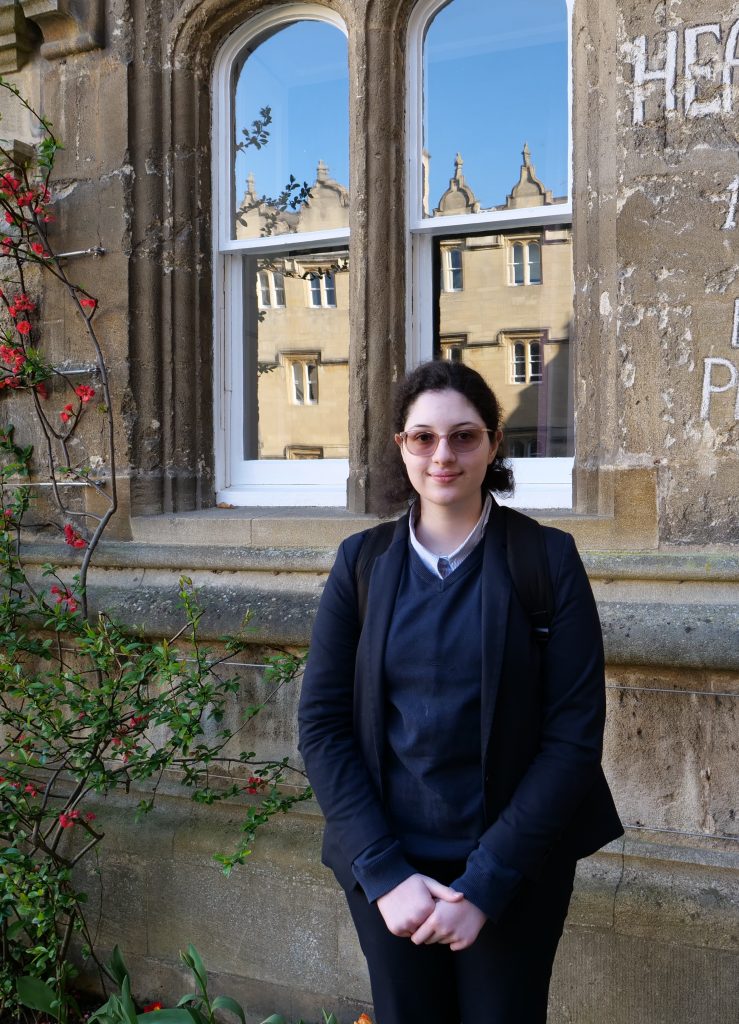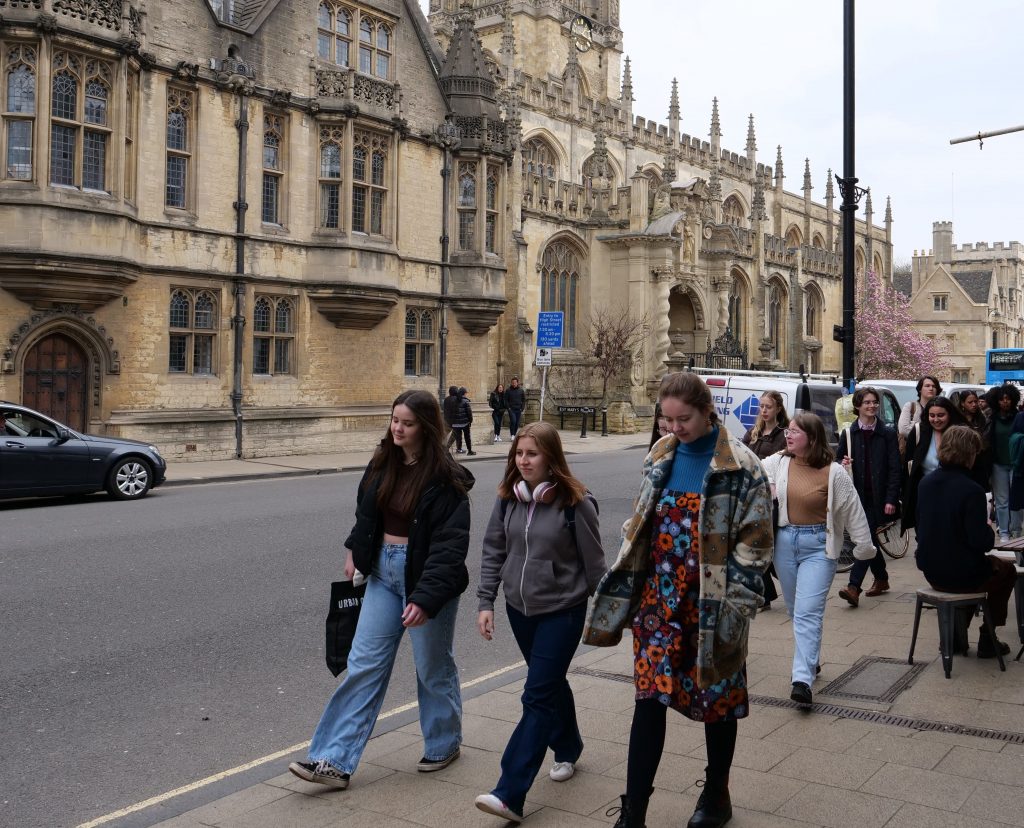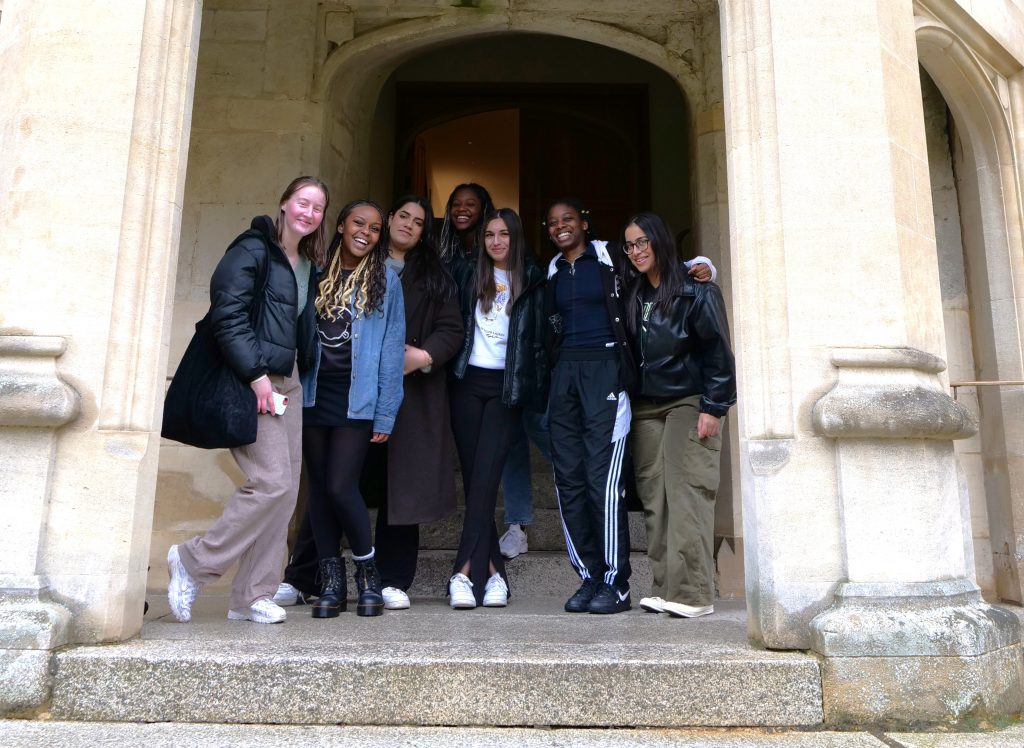Oriel hosts Easter Residential Programmes for Year 12 Students
We were delighted to host three Easter Residential Programmes for Year 12 students from non-selective state schools. 78 students took part in programmes in Philosophy, Classics, and Women in Sustainability.
Funded thanks to the generosity of an Orielensis, Easter Residential Programmes give prospective students a great opportunity to learn more about studying at university, the admissions process, and get a unique insight into life at Oxford.
Philosophy and Joint Schools
Sofiia, one of our Philosophy Programme participants, was keen on understanding more about academic life at the University:
“The academic taster sessions were amazing. The people who taught them were interesting and passionate, and we were able to engage with really high-level questions.”

We asked Sofiia if she would recommend the programme to her friends, to which she replied:
“100% percent. I loved it. I really want to apply to Oxford now. It’s an amazing programme, it’s not too overwhelming, but it gives you a lot to learn and think about. It was nice not only to learn about the academic side, and admissions process, but also meet like-minded people. I would recommend it to anyone hoping to apply to the University, or hoping to get a taste of Oriel College or Philosophy, in particular.
“Helpers were always there to answer millions of questions – whether it was describing the history of Oriel and Oxford or recommendations for books we could read, or what the University was like. They were definitely very helpful and approachable.”
One of the taster sessions titled ‘Cosmic Fine-Tuning: Was the universe designed for life?’ was led by College Lecturer in Philosophy, Dr Emily Qureshi-Hurst.
Dr Qureshi-Hurst notes that “the value of these programmes is more than giving them [pupils] something to put on a university application – it can inspire students to want to take their studies further and enter higher education”.
Classics Study Day
Dr Tristan Franklinos, one of the Classics Lecturers at Oriel, emphasises that this programme is “incredibly helpful” for both tutors and visiting pupils, as it gives College an opportunity “to show prospective students the range and breadth of what the different Classics degrees in Oxford offer in terms of literary, historical, cultural, archaeological, and philosophical interest in a focussed, tutor-led environment to which the pupils can bring any questions they may have”.
On the second day of the programme, Dr Franklinos captured pupils’ attention with a lecture on ‘The Lover’s Gaze’ – on Roman love poetry and “the way in which the beloved is constructed, often in visual terms by the poet”. The lecture was followed by a lively Q&A session.

Lola, a Classics Study Day participant, said she enjoyed the way the lecturers lead the sessions – all students were able not only ask the questions, but also to engage in debate with tutors.
Lola believes that the programme will definitely help prospective students the same age as her, who are interested in applying to Oxbridge. She says:
“I think you could be a little unsure of what you want to do for a course, and it’s better to find out it sooner rather than when you’ve applied for your study.”
Women in Sustainability
The Women in Sustainability Programme was designed for female students considering degrees in STEM or Social Sciences who have an interest in exploring Sustainability through academic study.
Participants of the Programme were introduced to the topic by Oriel Frank Jackson Fellow Dr Constance McDermott, who spoke on Forestry and Land Use Governance from the global to local level, which has been a part of her research for the last 30 years.
Dr McDermott believes this field of research is highly suited to students with a wide range of interests: “What we really need in the field is different perspectives, a whole balance of different kinds of research. The good thing about that is that there’s something in there for everybody. Depending on people’s priorities and interests, whether you really want to focus on the political side or the applied side, or do field work in different countries and travel, or look at the economics.”
